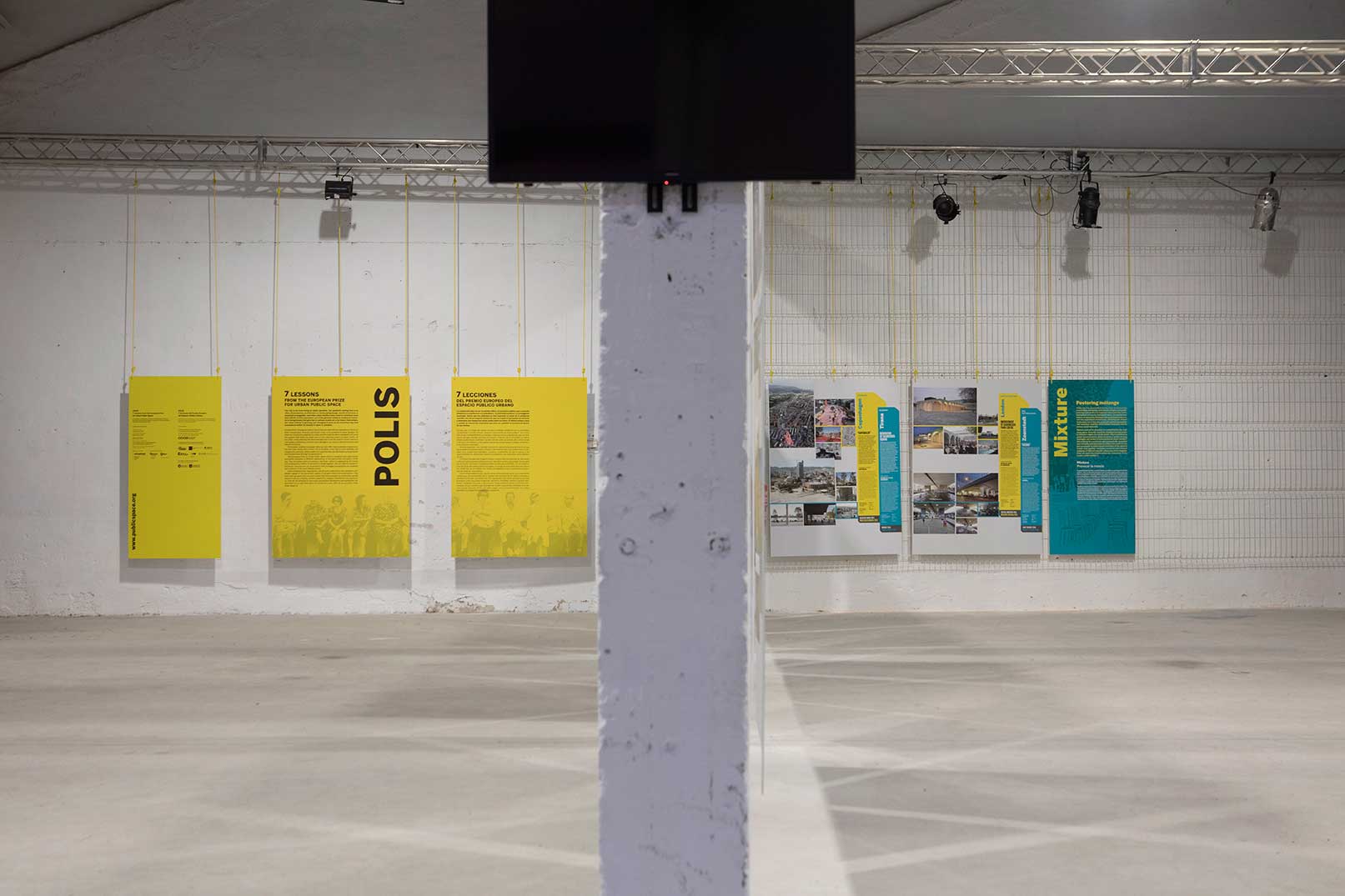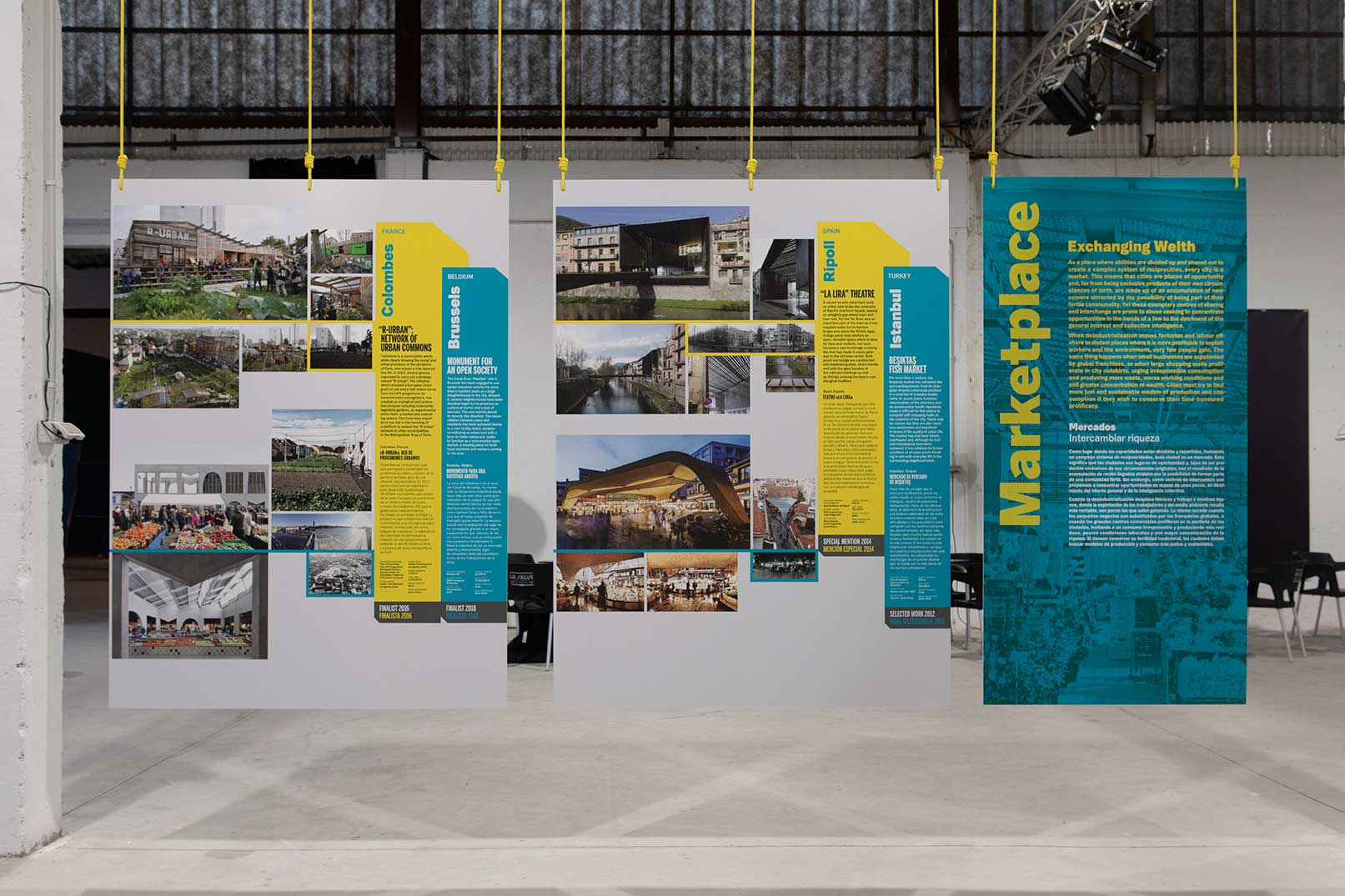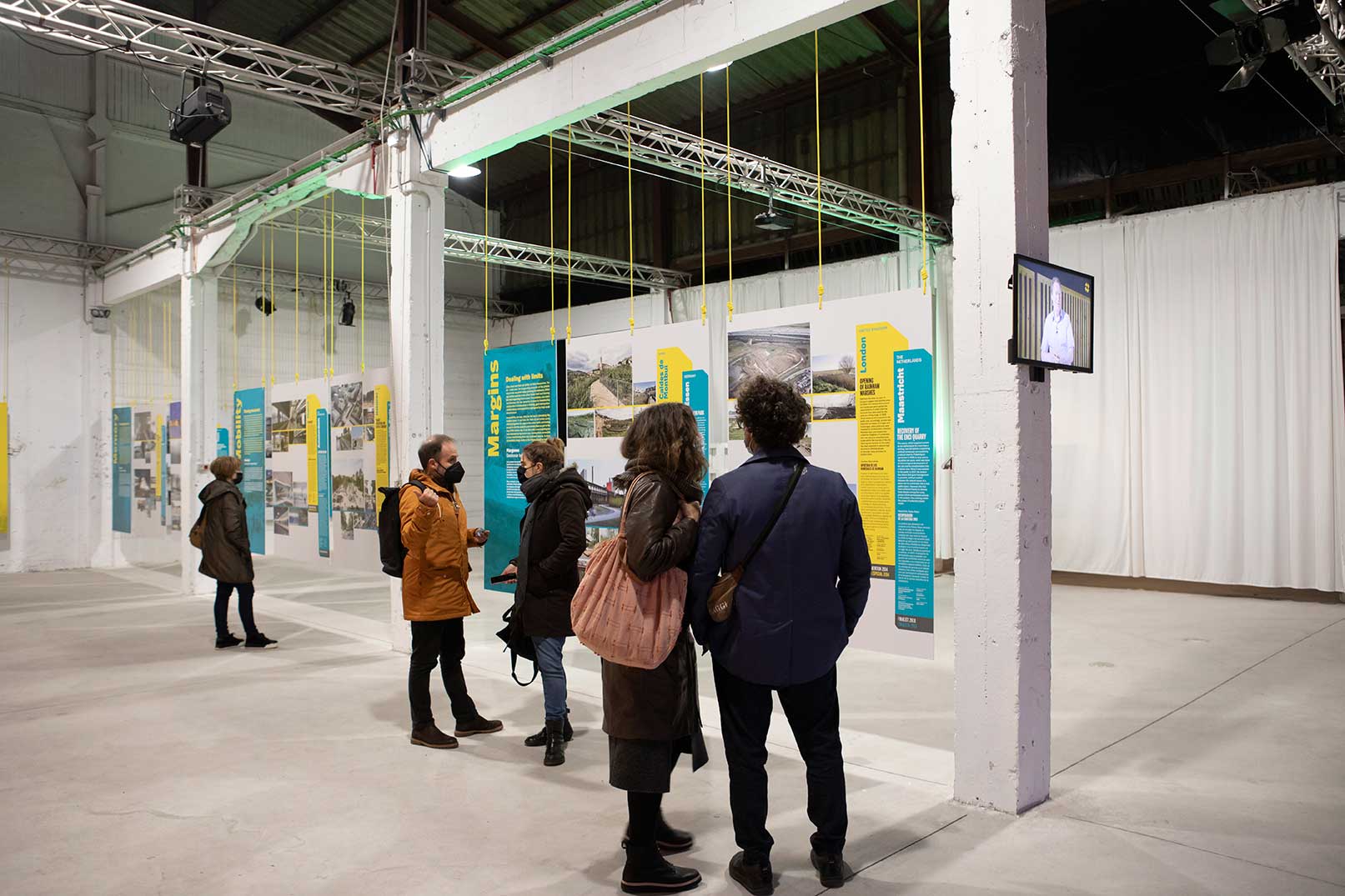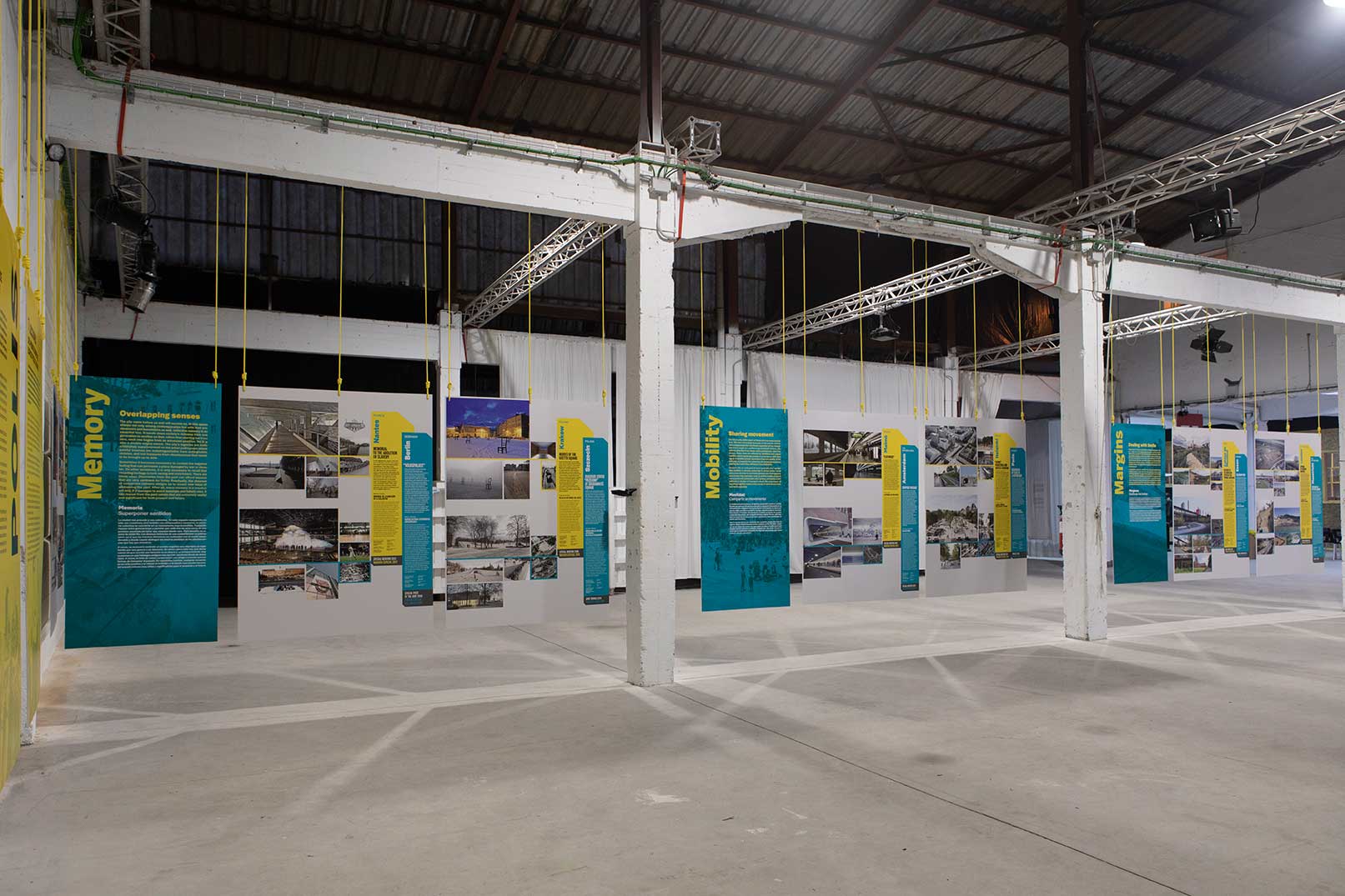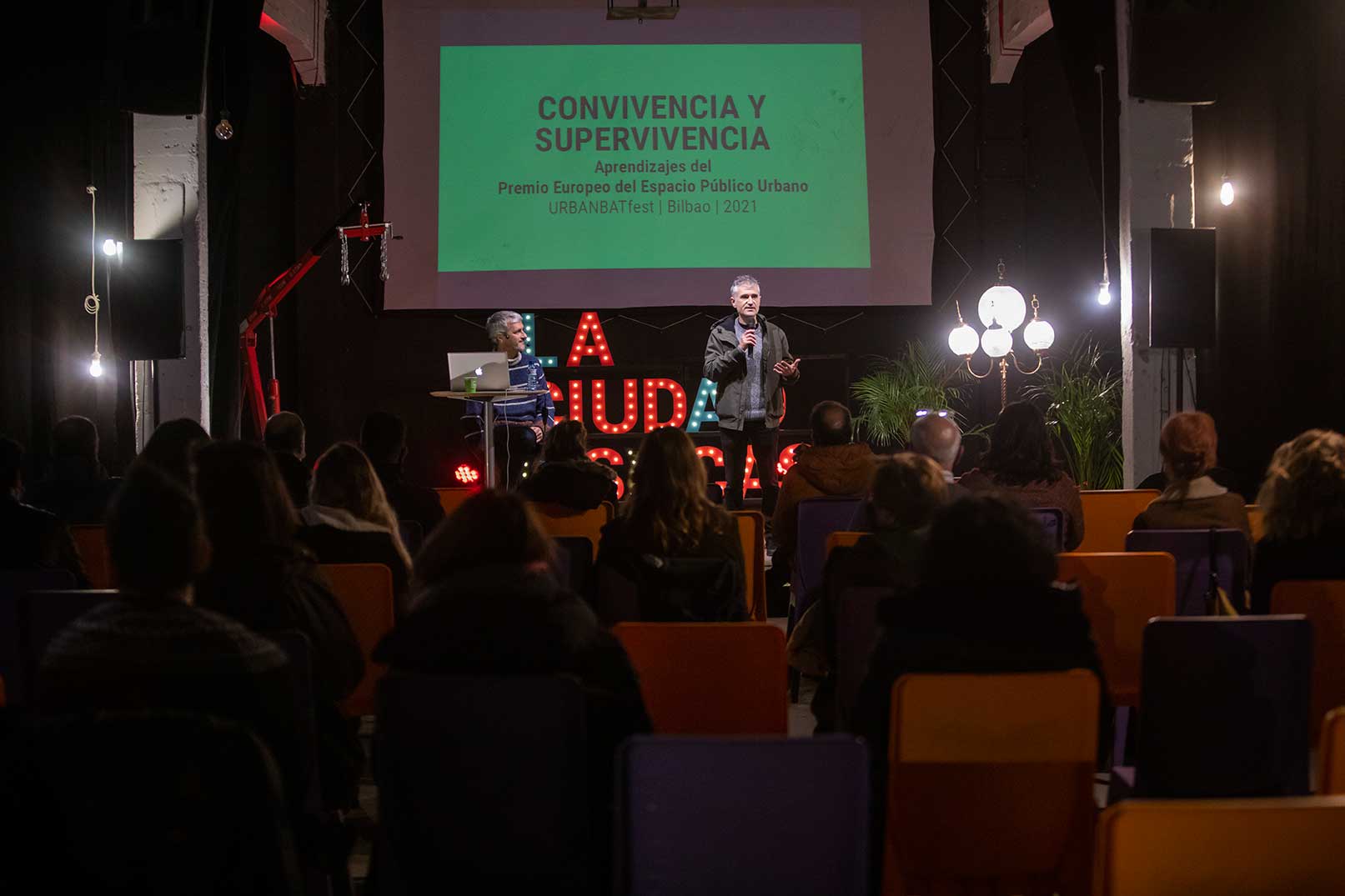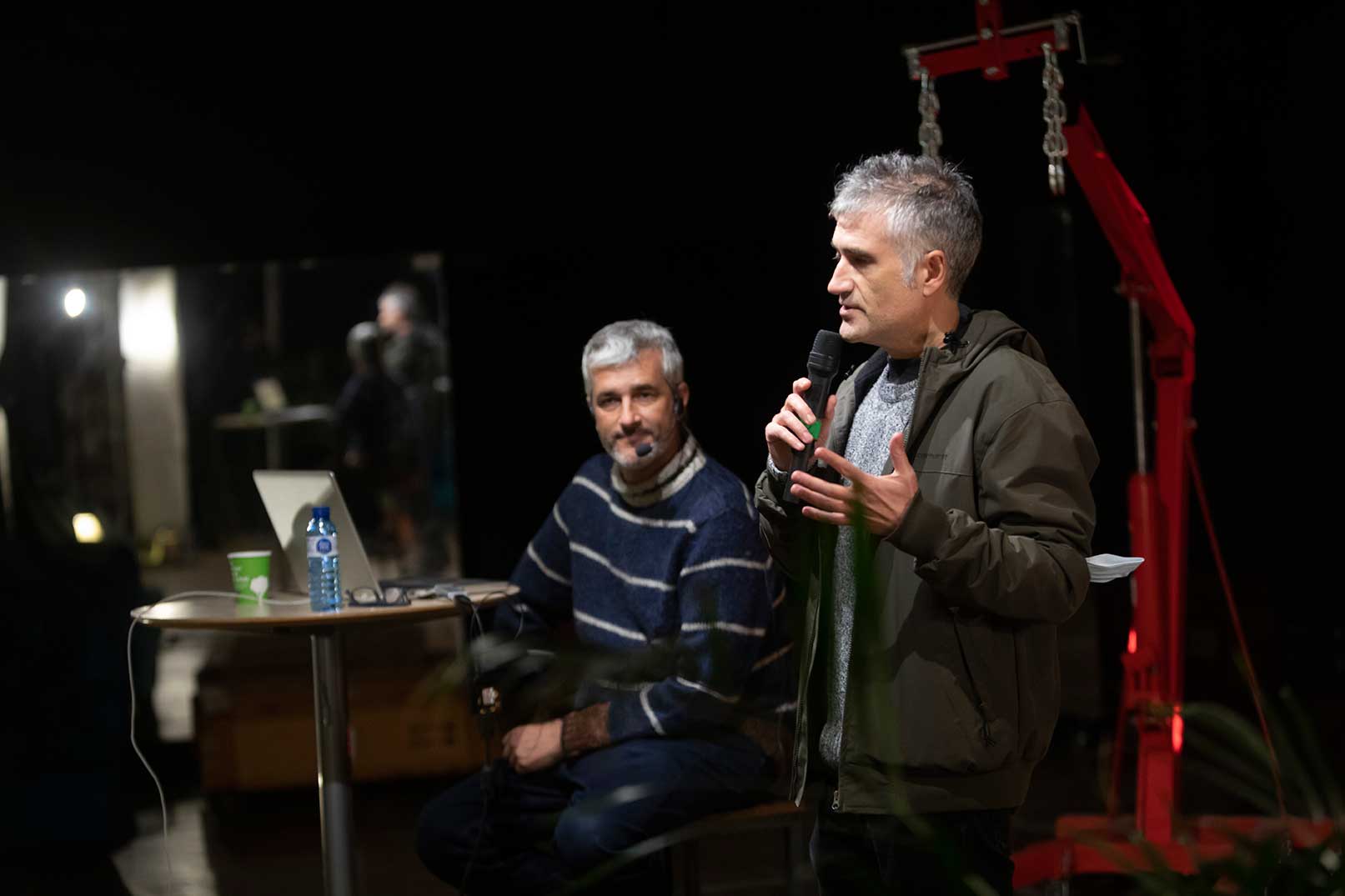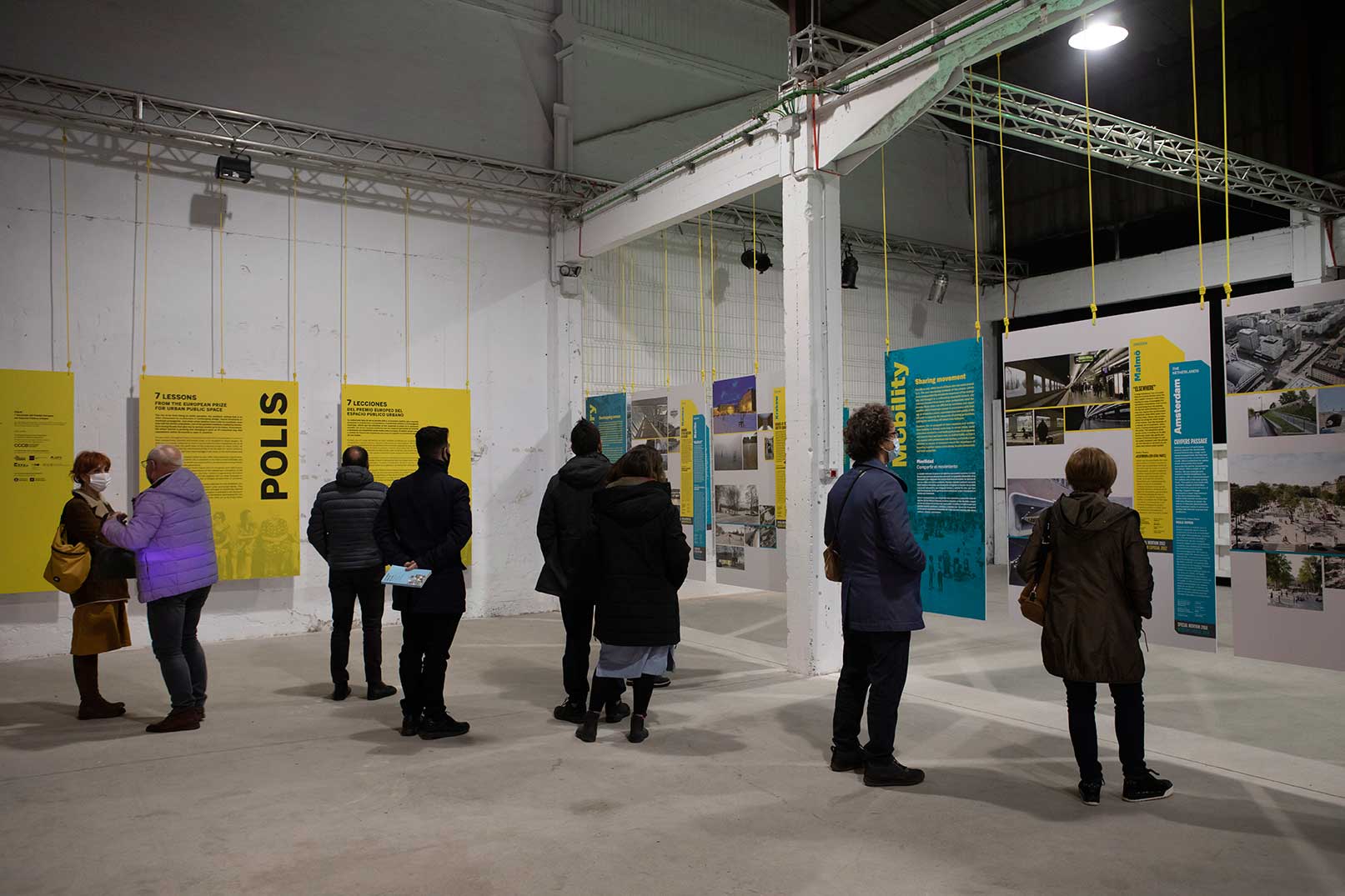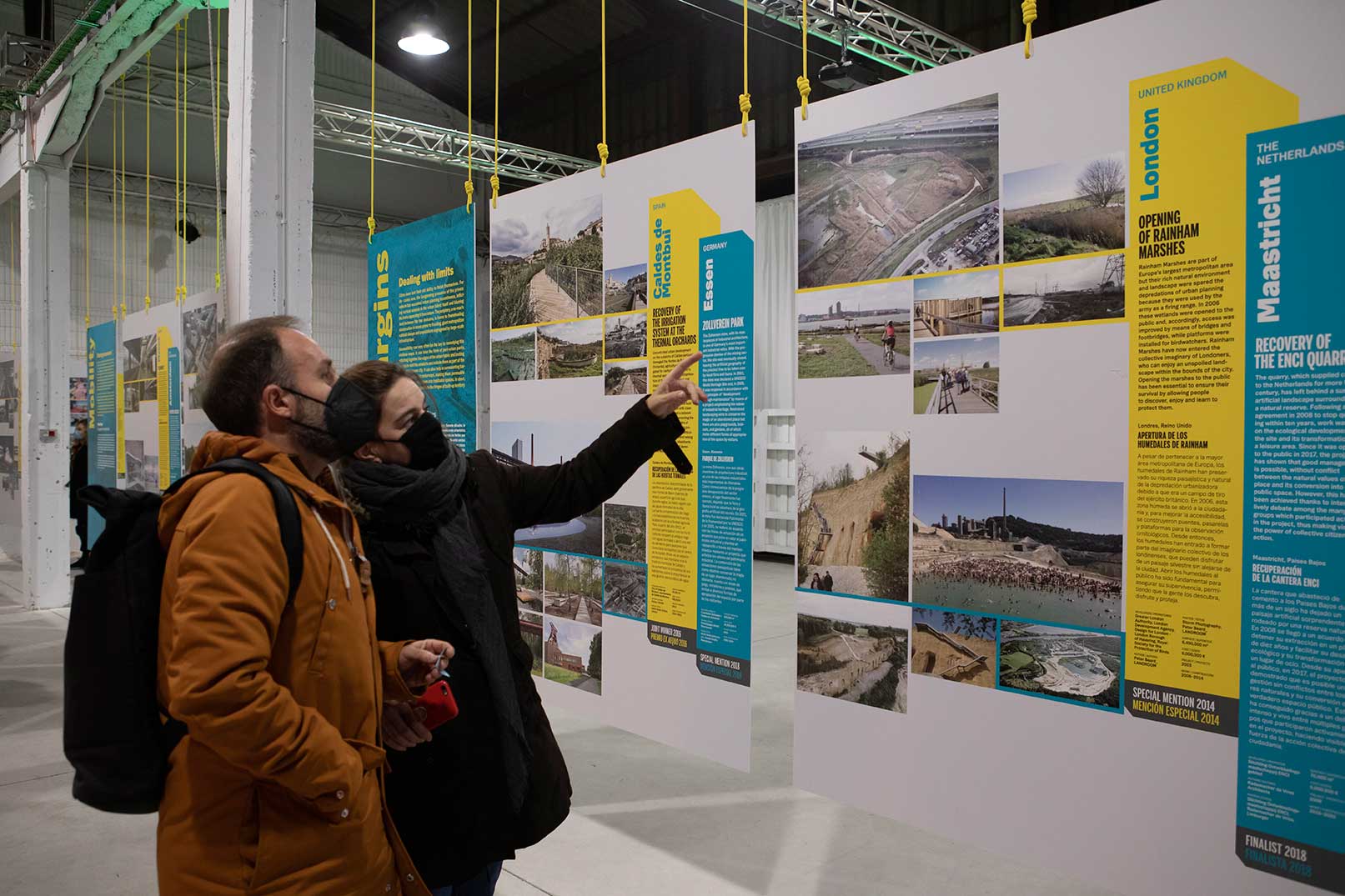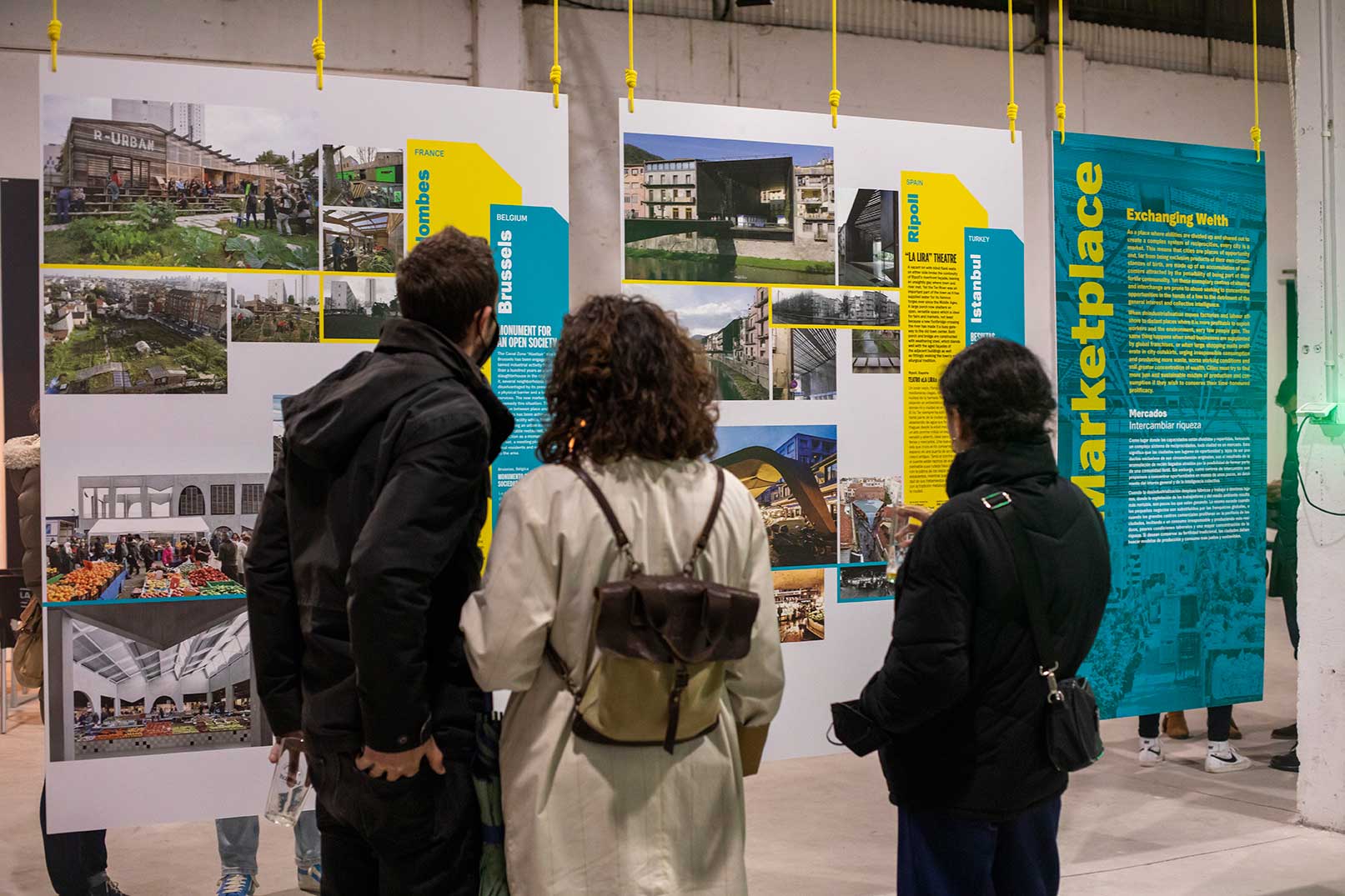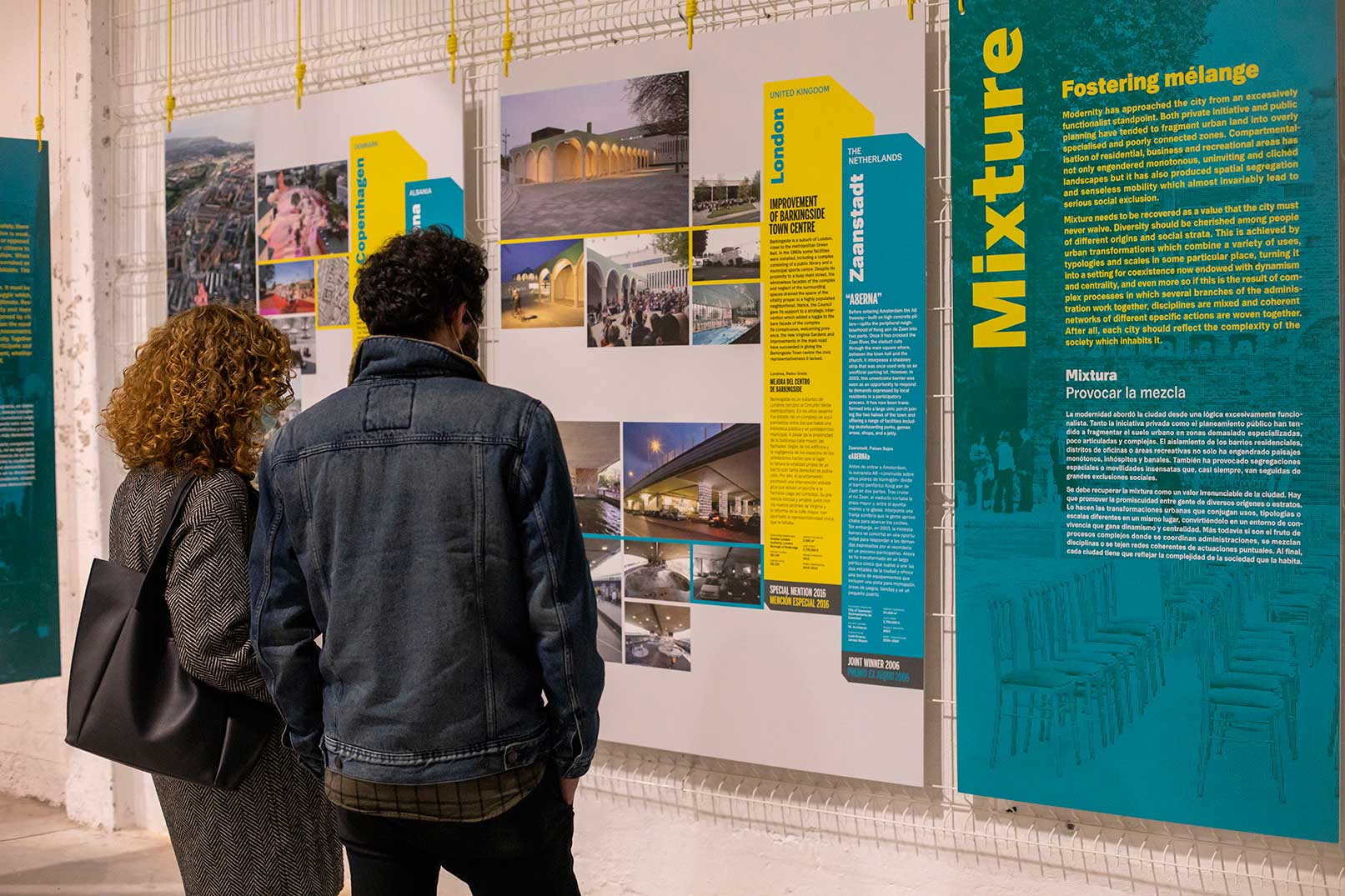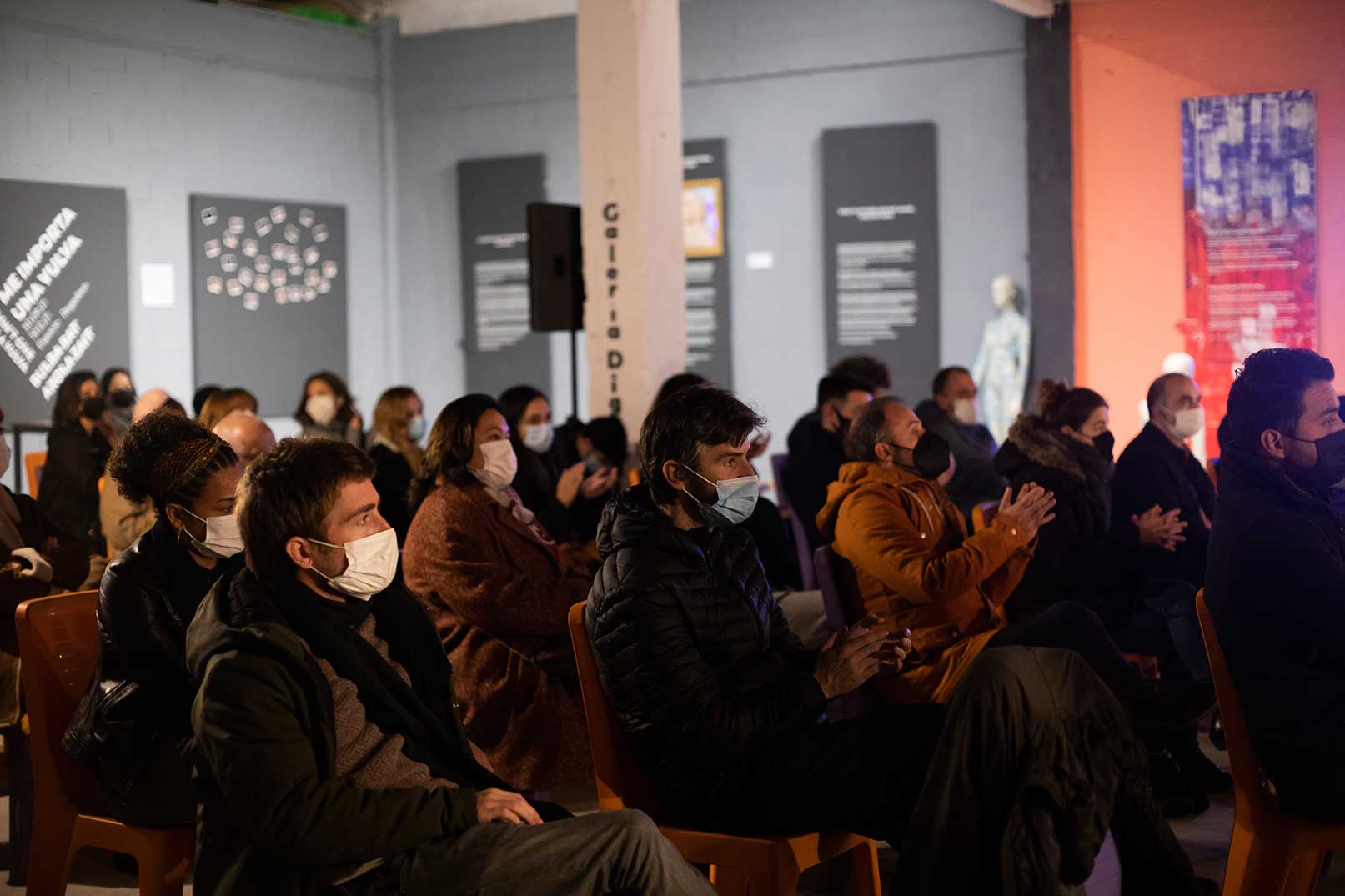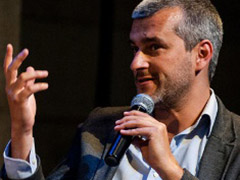The exhibition "Polis: 7 Lessons from the European Prize for Urban Public Space" is showing in Bilbao in the context of the 10th edition of the festival of urban transformations URBANBATfest.
URBANBATfest is a festival focused on urban transformations, which has been organised in Bilbao by the Urbanbat collective for the past 10 years. Each year, the event takes on topics related to architecture, urban planning, and social innovation, encompassing various disciplines and formats: exhibitions and conferences, music and photography, itineraries and gastronomy. The aim is to bring together the different actors in the urban milieu – the public administration; social, cultural, and economic agents; academia; and citizens – to work on joint solutions that will enable us to design cities on a human scale.
Each year’s edition focuses on one phenomenon that affects our urban surroundings. This year, in the wake of the pandemic and the periods of lockdown, the URBANBATfest theme is “La ciudad (es)casa” [A play on words combining “The city is home/The city is scarce”]. Some of the questions to be addressed include: What is the city that we find as we emerge from our homes? How can we imagine a transition from the inherited urban model, which has been proven deficient, towards alternatives that are put forward as a utopia, but which have not fully taken root?
One of the key themes in this reflection has to do with retaking public space after the pandemic. To that end, the exhibition Polis: 7 Lessons from the European Prize for Urban Public Space offers 28 examples of best practices that demonstrate how a better city is possible. A more liveable, inclusive, and sustainable city. The works included in this exhibition, selected from among the projects from all 10 editions of the European Prize for Urban Public Space, are grouped according to seven themes: memory, mobility, mixture, waterfronts, margins, markets, and democracy, and they stand as a measure of the democratic quality of the urban and social fabrics of Europe.
The exhibition, which took place at La Terminal – factory for the cultural and creative industry [ficc] from 6 to 21 November, was open with a presentation and a guided visit led by the exhibition’s curator, David Bravo.


